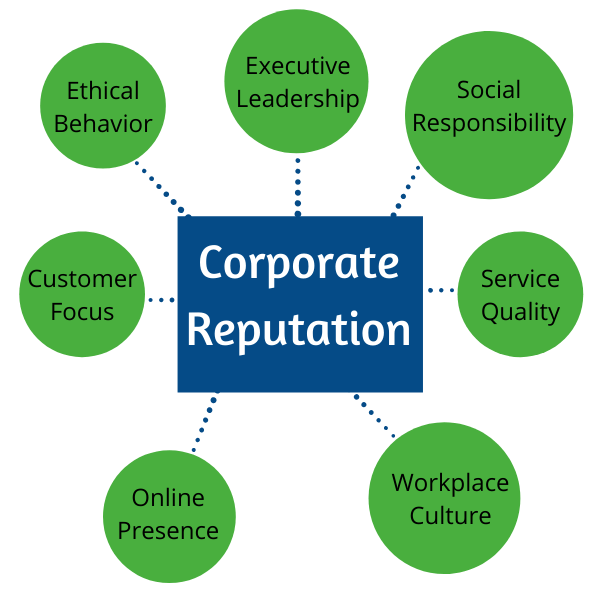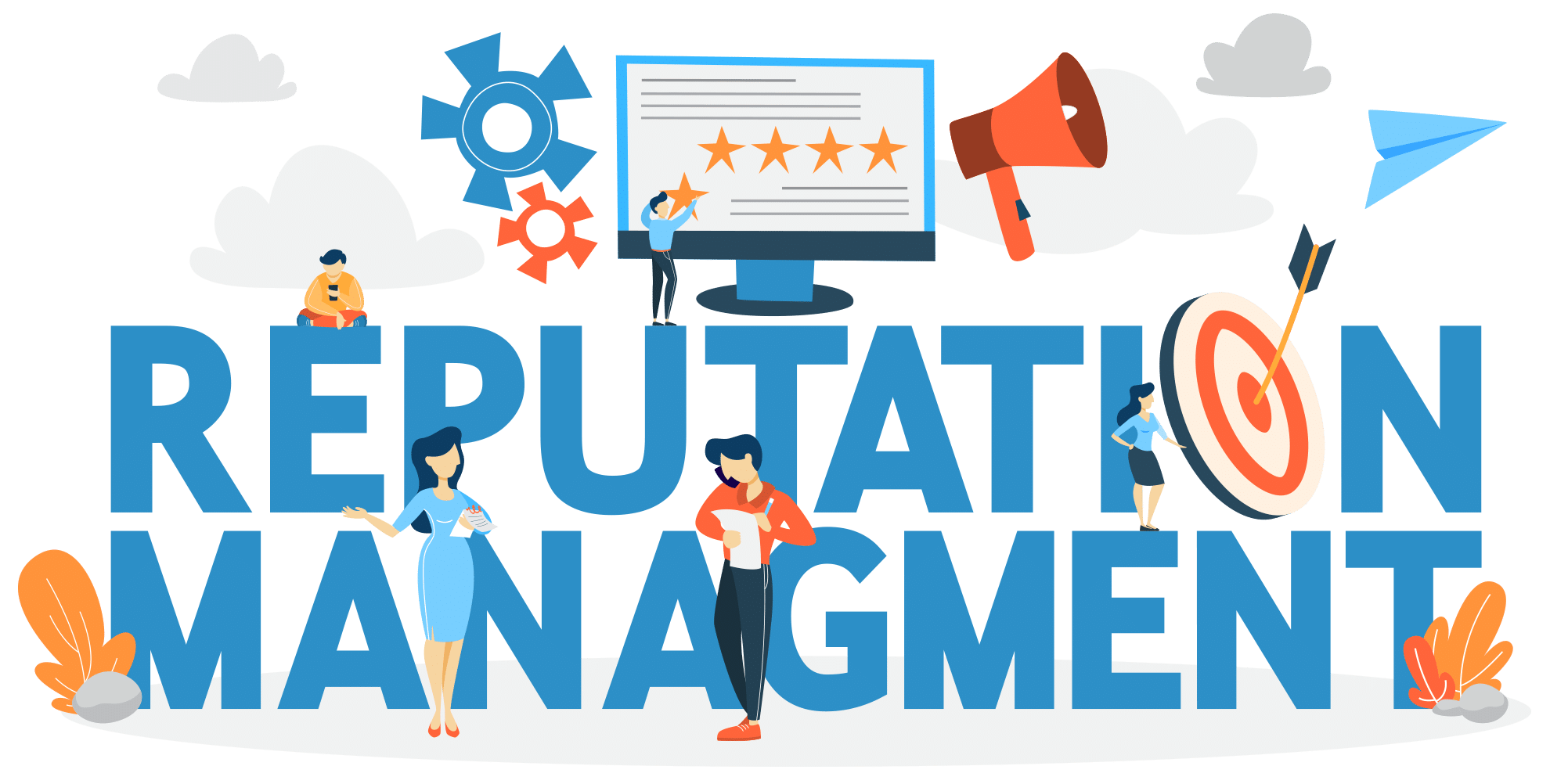Reputation Management Solutions: Your Trick to Digital Integrity
Wiki Article
From Crisis to Possibility: Leveraging Online Reputation Monitoring in Times of Misfortune
In today's hectic and interconnected globe, people and services face the continuous risk of situations and misfortunes that can potentially harm their hard-earned track record. However, amidst the chaos exists an opportunity - a possibility to not only grow but endure in the face of difficulty. Online reputation administration plays an important role in browsing these difficult times, guaranteeing that the damages is lessened and the potential for development is made best use of. In this discussion, we will explore the art of leveraging reputation monitoring during times of crisis, using understandings and strategies that can transform a tough scenario into a tipping stone for success. Prepare to reveal the keys behind turning dilemma right into possibility, as we look into situation researches and examine the power of social networks in shaping track record.Understanding Reputation Monitoring
Comprehending track record monitoring is vital for individuals and services seeking to maintain a positive public picture and minimize potential damages in times of difficulty. Credibility management incorporates the techniques and tactics made use of to form, preserve, and protect an individual's or company's reputation (Reputation Management). It involves proactively monitoring what is being said concerning the private or business, both online and offline, and reacting suitably to any damaging or negative infoIn today's digital age, where information spreads out quickly and can have a long lasting influence, track record management has actually come to be a lot more crucial. Social media site platforms, on-line evaluation websites, and information outlets can swiftly amplify any kind of negative promotion or criticism, possibly triggering significant damage to an individual's or organization's online reputation. By comprehending reputation administration, individuals and companies can properly navigate these obstacles and proactively deal with any type of issues that may emerge.
Key elements of reputation administration consist of monitoring on the internet evaluates and points out, involving with clients or stakeholders, dealing with negative comments or objection in a specialist and prompt manner, and actively managing on the internet profiles and web content. In addition, businesses and individuals ought to aim to develop a solid track record by supplying on assurances, giving excellent customer support, and taking part in ethical techniques.
Identifying Hardships and Crisis Circumstances

To determine these adversities and dilemma circumstances, organizations require to establish a durable tracking and very early warning system. This entails actively keeping an eye on traditional media, social media systems, on the internet forums, and various other relevant sources for any type of prospective threats or adverse conversations connected to the organization. Reputation Management. By remaining attentive and proactive, organizations can promptly respond and identify to emerging issues, avoiding them from spiraling uncontrollable
In addition, organizations need to additionally perform routine threat evaluations to recognize prospective susceptabilities and powerlessness in their procedures. This allows them to establish backup strategies and protocols to deal with dilemmas effectively when they do happen. By being prepared and aggressive in recognizing misfortunes and situation situations, companies can better safeguard their track record, keep stakeholder trust, and ultimately turn hardship into chance.
Structure a Crisis Response Strategy
Developing an effective crisis response strategy is important for companies to efficiently browse with misfortune and secure their track record. In times of dilemma, organizations should be prepared to respond rapidly and efficiently to reduce the influence on their stakeholders and maintain public trust. Building a situation feedback approach includes a number of essential steps.To start find with, companies need to establish a situation monitoring team consisted of key people from various departments. This team needs to be in charge of establishing and executing the crisis feedback strategy. They should have a clear understanding of the organization's worths, goals, and key stakeholders.
Second of all, organizations have to carry out a thorough threat evaluation to identify prospective crises that can take place and assess their possible impact. This entails assessing interior and exterior elements that can result in a situation, such as operational disturbances, financial problems, or reputational threats.
Next, companies should establish a communication plan that lays out how they will connect with their stakeholders during a dilemma. This plan must include clear and regular messaging, in addition to networks and platforms to get to different target markets.
Additionally, organizations should develop methods for monitoring and reviewing the situation response method. This includes regularly updating the strategy and examining to guarantee its effectiveness and making required adjustments based upon lessons picked up from previous crises.

Making Use Of Social Media in Reputation Management
Social media site has actually ended up being an important device for organizations in handling their credibility throughout times of adversity. news With the rise of social networking platforms such as Facebook, Twitter, and Instagram, companies currently have the possibility to straight involve with their stakeholders and attend to any type of concerns or concerns that might occur.During times of situation, social media sites enables organizations to quickly disseminate details, supply updates, and connect their side of the story. By proactively taking part in social media conversations, organizations can keep an eye on public sentiment, address misinformation, and demonstrate transparency and accountability.
Among the key advantages of utilizing social networks in reputation monitoring is the ability to reach a huge audience in real-time - Reputation Management. Through social media sites platforms, companies can engage with stakeholders from throughout the world, no matter geographical borders. This enables them to not only handle their reputation in your area but likewise on an international range
Another benefit of making use of social media sites is the interactive nature of these platforms. Organizations can actively pay attention to their target market, respond to their problems, and show a determination to settle concerns. This degree of involvement assists develop count on and trustworthiness, which are vital for track record management.
However, it is very important for companies to approach social media with care. Errors or inappropriate feedbacks can swiftly escalate a situation and additional damages the company's credibility. It is essential for companies to have a distinct social media technique in area, with clear guidelines on how to resolve dilemma scenarios.
Transforming Dilemma Into Opportunity: Situation Researches
Several organizations have actually effectively transformed crises into possibilities by efficiently handling their reputation and carrying out strategic actions. These study highlight the value of aggressive credibility administration throughout times of adversity.One such situation research study is the Tylenol dilemma in 1982. By prioritizing consumer security and openly dealing with the dilemma, Johnson & Johnson not only restored customer trust fund yet additionally established brand-new industry standards for item safety and security.
Another noteworthy example is the Domino's Pizza crisis in 2009. 2 staff members shot themselves damaging food in a Domino's kitchen area and posted the video online. In action, try this Domino's quickly asked forgiveness and introduced an extensive online campaign to deal with the crisis. The firm's chief executive officer personally attended to the problem in a YouTube video clip, showing openness and commitment to client complete satisfaction. This proactive approach helped Domino's reclaim client count on and also boost sales following the incident.
These situation research studies show the value of swift activity, transparency, and efficient communication in transforming crises right into chances. By properly managing their credibility and implementing calculated activities, organizations can not only minimize the negative effects of a crisis however additionally emerge stronger and extra resilient.
Conclusion
In times of misfortune, online reputation management plays a vital duty in companies' survival and success. By understanding the importance of credibility administration, recognizing situation scenarios, and structure reliable feedback strategies, companies can effectively navigate through difficult times. Leveraging social media as a tool in credibility management can even more enhance organizations' ability to address situations and connect with stakeholders. Through proactive and strategic online reputation monitoring, situations can be become possibilities for development and enhancement.By being prepared and proactive in recognizing difficulties and dilemma situations, companies can better shield their track record, maintain stakeholder trust fund, and eventually turn misfortune into opportunity.
Creating an effective situation reaction approach is critical for organizations to efficiently navigate via hardship and protect their track record. Missteps or unacceptable responses can swiftly escalate a dilemma and more damage the company's reputation. Leveraging social media as a device in reputation administration can better enhance organizations' capacity to address dilemmas and connect with stakeholders. Through aggressive and strategic reputation administration, situations can be transformed into possibilities for development and enhancement.
Report this wiki page